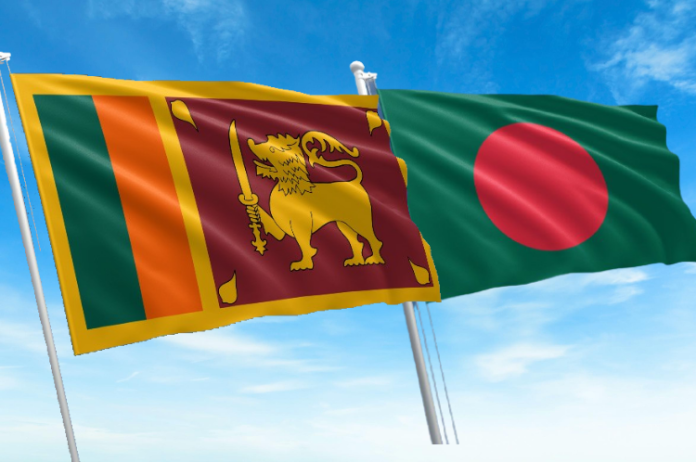By Ashis Biswas
Much to India’s satisfaction, its immediate South Asian neighbours have not hesitated to condemn Canada’s intemperate outburst, accusing New Delhi publicly of killing H.S.Nijjar: the hard core Khalistani extremist Nijjar had settled in Canada, where he was shot down by unidentified assailants on June 18 this year.
As Bangladesh and Sri Lanka reacted to Canada’s snubbing of India, ruthlessly exposing Ottawa’s own long duplicitous record in sheltering self proclaimed South Asian terrorists of all hues in recent years, the US-led bloc of Western countries significantly toned down the anti-Indian thrust seen in their initial messages on the issue. Once more , the collective voice of the global South had spoken out on a regionally sensitive issue and it was not impressed by stock Western arguments ostensibly in favour of ‘rule of law’, or ‘individual rights’
As with the ongoing war in Ukraine, even in these critical times, non Western countries seem determined to follow their own political agenda on major world events/trends, in unconcealed defiance of narratives peddled by the developed G-7 club of advanced countries.
Both Sri Lanka and Bangladesh are facing testing times at home. The post Covid economic crisis has hit both countries hard, lowering living standards for millions, with no signs of any quick-fix solutions in the near term. Both countries are dependent on major Western institutions like the International monetary Fund (IMF) and more developed countries for urgent financial assistance.
It is a sign of changing times that even as they continue to grapple with severe challenges to order and general governance — impending Bangladesh elections will be closely monitored by a generally hostile Western bloc of nations — South Asian countries have not flinched from pursuing bold, independent foreign policies. India has taken the lead by continuing its purchase of Russian oil boldly defending its decision on economic grounds — never mind the anti- Russian sanctions imposed by the G7 group.
Similarly, despite the slight easing of its relationship with the West, Bangladesh Prime Minister Sheikh Hasina has strongly reiterated Dhaka’s commitment to foster and further strengthen relations with Russia. The new assertion of the global south comes in the backdrop of the formation of the BRICS grouping and the establishment of financial institutions like the new AIIB.
Nor is the phenomenon restricted to Asia. The stunning failure of western initiatives to drum up support for the ruling regime in Ukraine among the 50-odd African countries, some of them resource-rich, further exposed the increasing political isolation of the G7 bloc itself , as duly noted and analysed by Western non- mainstream media commentators.
As expected, there was no official reaction from Pakistan, a country that has consistently sponsored the secessionist Sikh cause against India materially and otherwise. Within the Indian intelligence community, many had warned that there would be a major uptick in the activities of the outlawed Sikhs for Justice (SFJ) and other similar organisations as soon as Pakistan eased travel restrictions to encourage pilgrimage to Sikh holy sites by opening the Kartarpur corridor. The sudden recent spurt in the anti-Indian demonstrations and targeted vandalism by extremists against Indian establishments abroad comes as no major surprise.
Observers find it hard to refute an argument advanced by a Bangladeshi analyst, suggesting that Canada and other Western countries seem to have a poor opinion of law and general legal practices in South Asian countries. Thus, elections in Bangladesh cannot be deemed ‘free and fair’, unless Western countries say so. Also, all opposition-sponsored complaints about the violation of human rights and related issues are true to the letter, while official versions/explanation of specific events/incidents are patently false and dubious!
Not only are statements made by ruling Ministers and officials are summarily rejected — a powerful country like the US sanctions targeted leaders and functionaries. ‘The objective is to put pressure on behalf of the opposition parties in the ruling government, clearly an interference in our domestic politics, instead of starting a meaningful diplomatic dialogue based on ascertainable facts’, he was quoted as saying in a section of the press.
As for Sri Lanka, ties with Canada have been affected since 2009. Many Sri Lankan Tamil youths, active fighters for an independent Tamil Eelam, had fled to foreign countries to escape ruthless retribution and punishment. Many had settled in Canada, but some had serious criminal charges pending against them. Despite specific requests, Canadian authorities had not responded to Sri Lankan requests for information about such people.
In fact the Canadian parliament observes a special ‘Tamil genocide day ‘ usually during its summer sessions in May, as Prime Minister Mr Justin Trudeau issues a special message for Tamils.
Canadian authorities do this in clear disregard of Sri Lankan concerns that such gestures only help to keep alive the hatred and discord that once prevailed between the two major communities of the island!
Again, Canada never responded to Bangladeshi requests for the whereabouts of alleged killers of Sheikh Mujibur Rehman, in 1975, including Noor Choudhury and Rashid, both sentenced to death by a Bangladesh war crimes tribunal.
Such trends showed the traditional western contempt of how the rule of law was/is maintained in South Asia, as demonstrated by official Canadian behaviour.
Thus, pious and ponderous lectures originating from high Ottawa officials/Ministers to India, Sri Lanka or Bangladesh on the’ rule of law ‘and related matters often sounded woefully inappropriate. (IPA )


